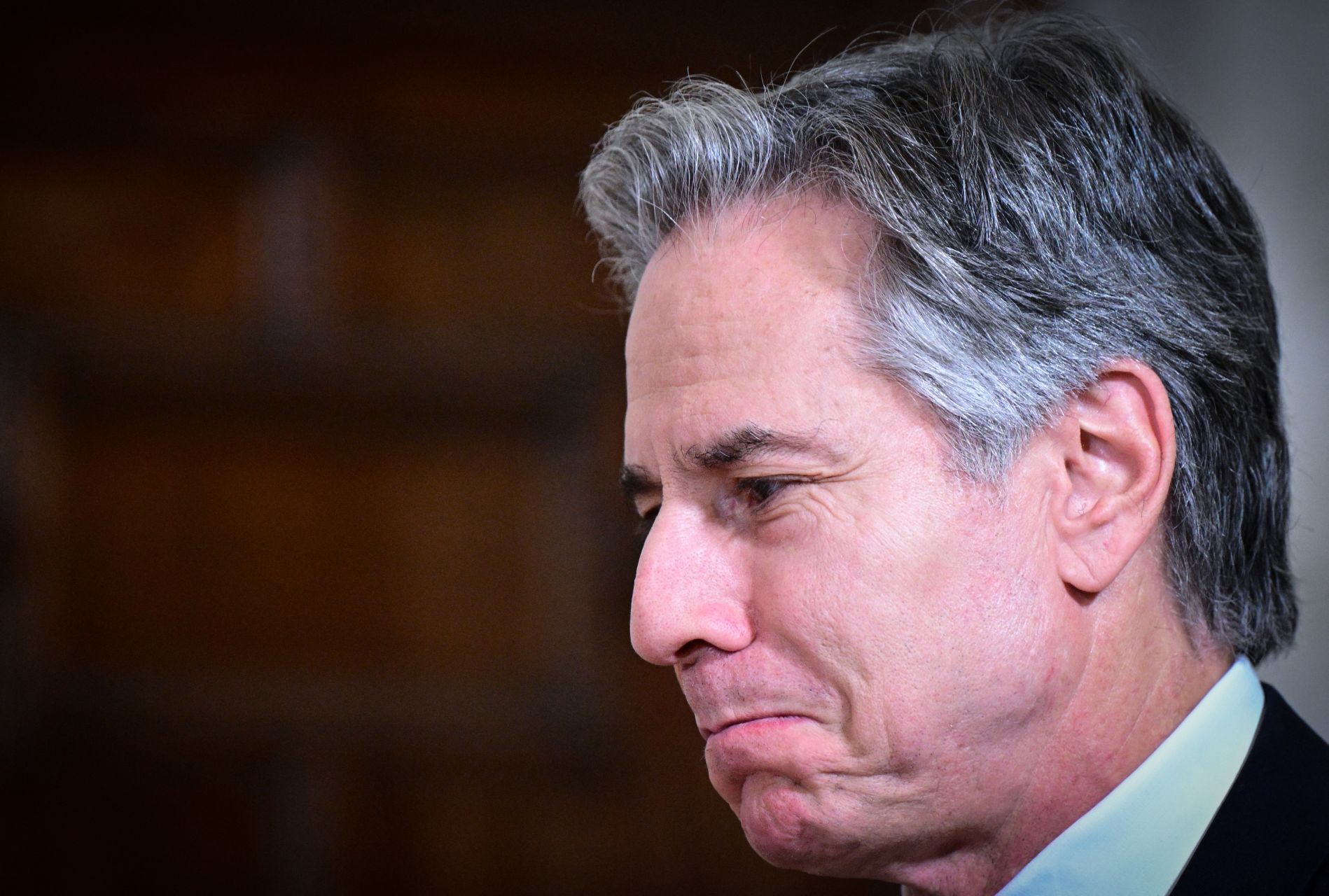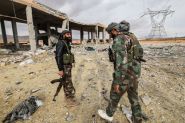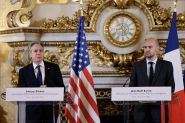- Home
- Middle East
- On His Final Trip, Blinken And the Europeans Try to Avoid a New Syrian Turmoil

©Tiziana Fabi / AFP
US Secretary of State Antony Blinken and his European counterparts insisted in Rome on Thursday on the need to stabilise Syria a month after Islamist rebels overthrew the country's leader, Bashar al-Assad, amid clashes with Turkey.
Mr Blinken dined in Rome on Thursday evening with his British, French, German and Italian counterparts, on the last leg of a farewell tour that had previously taken him to South Korea, Japan and France.
The head of Italian diplomacy, Antonio Tajani, told the press that the Western powers were looking for a ‘stable and united Syria’.
The five ministers agreed in particular on the need to protect religious minorities. They also called on ‘all groups in Syria to respect human rights and international humanitarian law’, and to ensure that Syria does not pose a threat to its neighbours and ‘does not serve as a base for terrorism’, said State Department spokesman Matthew Miller.
Concern has been growing since Turkey threatened on Tuesday to launch a military operation against Syrian Kurdish fighters, who have effectively run their own state during the bloody civil war that has ravaged Syria since 2011.
At least 37 people died on Thursday in fresh clashes between Kurdish-dominated forces and Turkish-backed factions in northern Syria, according to the Syrian Observatory for Human Rights (OSDH).
The Kurdish-dominated Syrian Democratic Forces (SDF), Western partners in an international anti-jihadist coalition, have spearheaded the fight against the Islamic State (EI) group. But Turkey accuses the SDF of having links with armed Kurdish separatists on its soil.
The United States is working ‘very hard’ to address Turkey's ‘legitimate concerns’ and prevent an offensive by Turkey against Syrian Kurdish fighters, Mr Blinken said on Wednesday, stressing that ‘this is a process that will take time’.
On Syria, he said he did not expect any change in policy from the new US President Donald Trump, who will take office on 20 January.
During his previous term in office (2017-2021), Mr Trump said he would accede to a request from Turkish President Recep Tayyip Erdogan to withdraw US troops fighting alongside Kurdish forces in Syria. But he backed down after an outcry from French President Emmanuel Macron.
Also on the agenda in Rome was the question of the sanctions still in force against Syria.
French Foreign Minister Jean-Noël Barrot said on Wednesday that certain sanctions ‘could be lifted quickly’.
The US Treasury Department announced this week that it would ease restrictions on essential services.
But US officials said they wanted to wait to see progress before lifting sanctions more widely - and it is unlikely that outgoing President Joe Biden's administration, in its final days, will be prepared to remove the victorious Syrian rebels Hayat Tahrir al-Sham (HTS) from the US ‘terrorism’ blacklist.
While the West is in general agreement on Syria, a few differences remain.
In particular, Mr Blinken repeated that it was ‘in everyone's interest’ to have the foreign militants of the Islamic State group and their family members, held by the tens of thousands in camps in Syria run by Kurdish fighters, returned to their countries of origin. France and the United Kingdom, which have suffered bloody jihadist attacks on their soil, are reluctant to do so.
The Rome talks come a week after a joint visit by Jean-Noël Barrot and his German counterpart Annalena Baerbock to Damascus, where they met the new Syrian leader Ahmad al-Chareh to plead for an inclusive political transition.
Mr Chareh, whose HTS movement is the former Syrian branch of al-Qaeda, has promised to protect minorities. For his part, a senior US official announced last month that Washington was cancelling its promised $10 million reward for the head of Mr Chareh.
Mr Tajani is also due to visit Syria on Friday and announce the first development aid.
Unlike the other European powers, Italy had tried to normalise its relations with the Assad regime a few weeks before its fall.
With AFP.
Read more



Comments